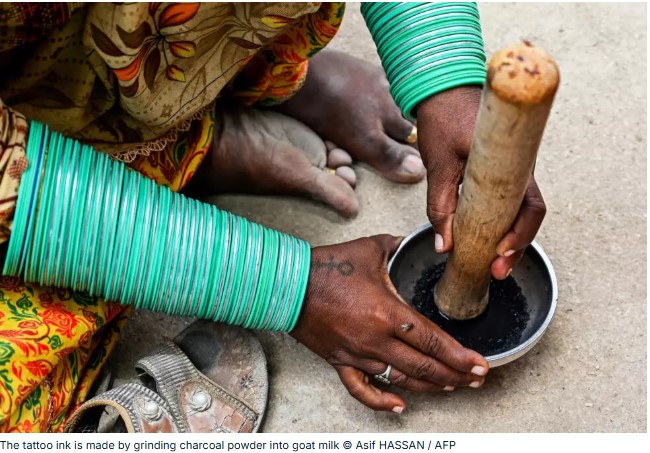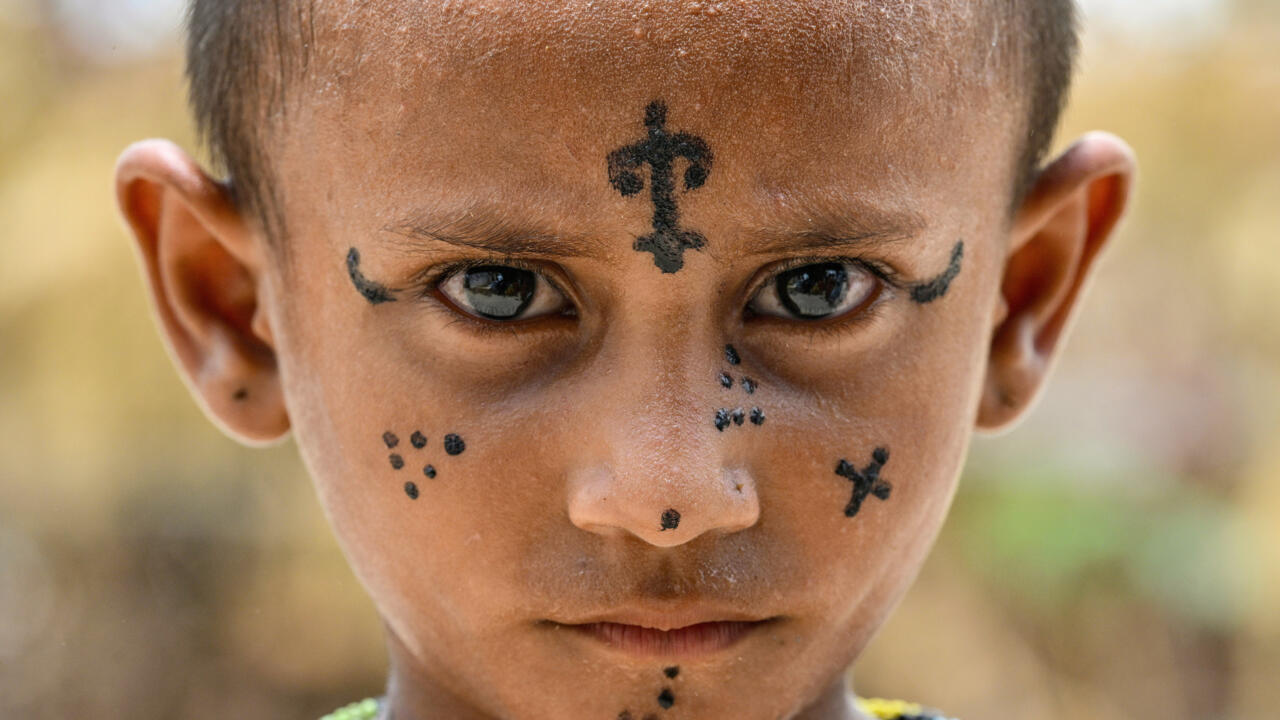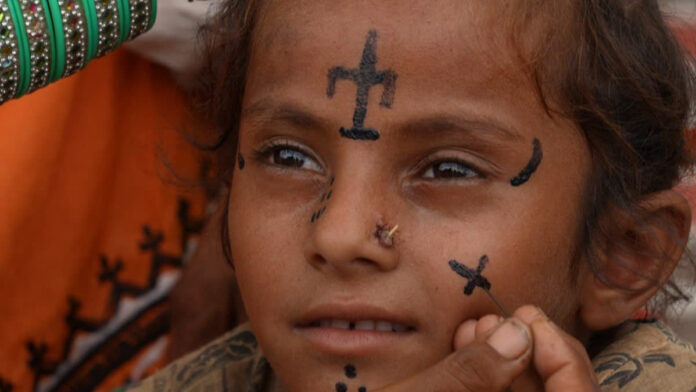For centuries, Hindu women in rural Sindh have carried tattoos on their faces, hands, and arms — intricate designs needled by elder women as a mark of beauty, protection, and community identity. But today, many younger women are rejecting the practice, saying it no longer fits with modern life.
In a small village near Umerkot, 60-year-old Basran Jogi still prepares charcoal mixed with goat’s milk to ink traditional patterns on children. Six-year-old Pooja and her seven-year-old sister Champa sit patiently as circles and triangles are drawn on their faces. For the elder generation, these tattoos are ancestral symbols, part of an unbroken cultural thread that stretches back to the Indus civilization.


But attitudes are shifting. “Our generation doesn’t like them anymore,” said 20-year-old Durga Prem, a computer science student from nearby Badin. “On social media, girls feel these marks make them look different or unattractive.” Her sister Mumta agrees, noting that while their mother and grandmother carry the tattoos, urban youth are increasingly distancing themselves from the tradition.

Activists argue that the shift is not only about beauty standards but also about social pressures. Hindus form just two percent of Pakistan’s population, mostly in Sindh, where discrimination against minorities persists.
“Younger generations don’t want to be instantly identified as Hindu,” explained Mukesh Meghwar, a campaigner for religious harmony. “We may be the last generation to see tattoos on women’s faces and arms.”
Anthropologists believe the tattoos once served both cultural and spiritual purposes — as community identifiers and as protection from evil spirits.
“These marks are part of the heritage of people whose roots go back to the Indus civilisation,” said anthropologist Zulfiqar Ali Kalhoro.
For many elders, the tattoos are not just patterns but memories.
“Whenever I see these marks, I remember my childhood friend who drew them for me,” said 40-year-old Jamna Kolhi. “She passed away years ago, but the tattoos are a lifelong remembrance.”
Still, as rural Hindu communities grow more connected to cities, the practice is fading. What was once a proud ancestral passion may soon survive only in memory — and on the fading green lines etched on the faces of older women.








